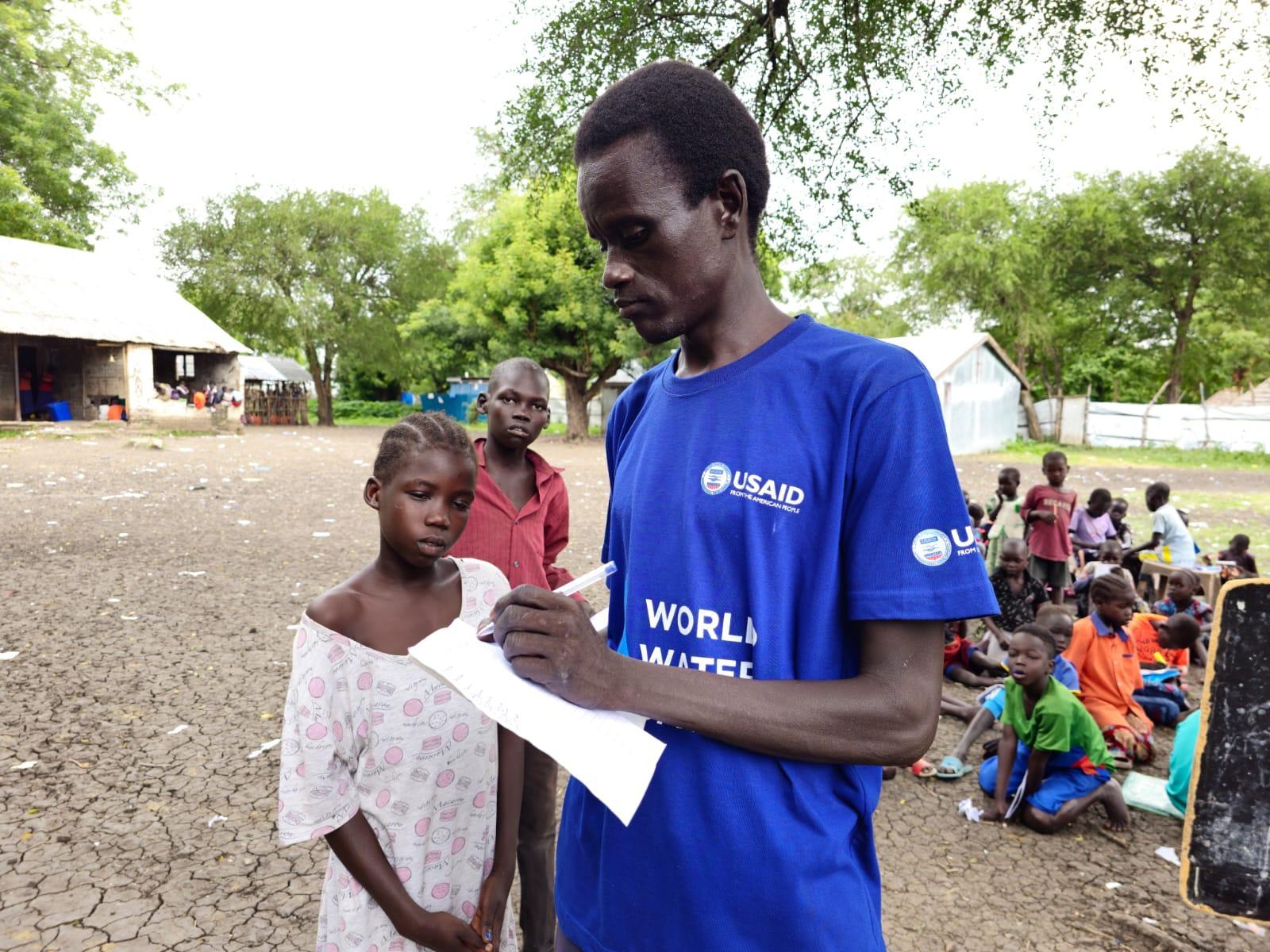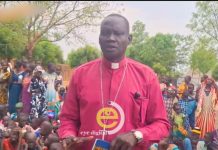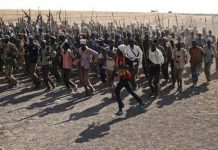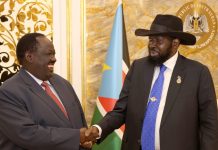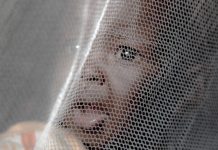Sheila Ponnie
Africa-Press – South-Sudan. South Sudan’s education system is still facing a lot of challenges, spanning from a lack of qualified teachers to poor infrastructure and low funding.
From the north to the south, east to west, the future generation who have stepped out of their comfort zones ready to quench their thirst for knowledge continue to wade through the face of some of these stinging difficulties.
But one area, Akobo, stands out.
The challenges facing the education sector here are at a higher decibel.
You need an extra layer of mental toughness to survive in Akobo. It gets worse if you are a student here.
If Akobo had a synonym, it would be that secret place on earth hidden away from civilization. Maybe, if Akobo existed in the aquatic world, it would be the golden fish with no botanical name but still famous and revered, in the world under the seas and big oceans where light and oxygen are in limited supply but life is abundant nonetheless.
The beautiful people of Akoba have developed a distinct symbiotic relationship with water, fish, and toughness. This land needs perseverance at another level for one to survive. The route to the acquisition of formal learning is patchy and winding in Akobo, just like the many rivers that circumnavigate some of the remotest villages in the world.
Learning under a tree
That is the spirit that Deng Kutey Mat needs every day to make his way to Presbyterian Mission Primary School.
“I just came early to copy notes,” Kutey, who harbours the dream of being a professional teacher, perhaps a first for his clan if his dream does come true, is one of the many students at this institution.
At this school, almost half of the pupils come to school in civilian clothes. They could easily be mistaken for hawkers at a nearby noisy fish market if it were not for their young ages or discipline.
But again, behind the walls of the congested classrooms here, these young souls are eager to learn a new skill, a new word, or a new mathematical formula. Each sunset in Akobo presents a child with an opportunity to take one step away from the danger of ignorance.
They hope that the knowledge that they pursue today, amidst the myriad of challenges, will be the secret key to unlocking the windows of opportunity that lie ahead of them.
But again, Akobo is not the place you would want your child to attend school, unless you have no option like Kutey.
Kutey has been learning under a tree, which forms part of the infrastructure at the larger Presbyterian Mission Primary School.
The entire Akobo County has about 50 primary schools and just a handful of secondary schools.
The effects of the 2013 war can still be felt deeper here. There were massive distractions from facilities, which left the few still standing under immense stress.
The land transport system is almost nonexistent here.
Some pupils are forced to swim to and from school because Akobo is fenced by water from the adjacent River Bor, a permanent landmark that separates South Sudan and Ethiopia in the far north at Tirgol; and the Akobo River, which flows north before emptying its contents into the Sobat River.
Akobo borders the counties of Nyirol, Uror, Pibor, and Pochalla in Jonglei, Ulang County in Upper Nile, to the north, and Ethiopia to the east.
These are the rivers that the more than 13,000 pupils in the entire county, have to cross, some, by puddled boats, others by swimming, to access education.
The lucky ones who got enrolled in ‘urban’ schools like the Presbyterian Mission Primary School have to put up with the constant noise from nearby markets and the smell of the fish, to grasp a thing or two from the teachers, most of whom are underqualified.
“This number of students could even be more, but due to the challenges of transport to reach school and congestion in the classrooms, it is even impossible for some of the children to come,” said Thomas Biel Yat, Deputy Head Master, Presbyterian Mission Primary School.
The school has no fence. There is a big footpath cutting across the main pitch that villagers use as a shortcut to the market. Some of these villagers carry deadly weapons further risking the lives of these future scholars.
But you cannot blame them. That is what Akobo serves her residents, a majority of whom lack formal education.
“Our school needs to be supported,” said Biel.
The adjacent Akobo River acts as a perimeter wall for the school. But here, the more than 600 students, all on a common mission to change a narrative, must restrain their eyes from wandering far lest they catch a glimpse of people bathing naked, on the nearby river banks.
The school has four classrooms, one of which acts as an administration block. The management supplements the deficit with bamboo classrooms, while other lower classes, like Kutey’s, are conducted under a tree.
“As you can see, students are sitting on the floor. We are in need of desks,” added Biel.
Primary three students in their class. [Sheila Ponnie, The City Review]
Meagre pay
To make matters worse, most of these schools lack qualified teachers. Those who are available are underpaid, leading to low morale and high turnover rates.
“We have been working as volunteers since 2014. We were not receiving salaries from the government.
“We receive a paltry SSP4,000 per month, which cannot even buy food for a family,” said Biel, a father of four.
Biel says, the stipend just started coming last year, in 2022.
But despite the low investment by the government in education, the people of Akobo are doing everything humanly possible to write their own positive story.
For the first time since 2013, the place had local students sit for senior four exams. This, remains one of the greatest positive stories to have come from Akobo.
Ruot Mach Top, the county education director, says the challenges are the same for both Akobo East and West.
“And that is because the government is not able to access all the areas in the country due to the crises that happened in 2013,” he said.
The 2013 conflict left permanent scars on the education sector in Akobo. Some of the students who were displaced by the conflict have yet to return to school.
“The main challenge is a lack of infrastructure because the classrooms are insufficient. Most of the schools are not well equipped. Many children are learning under the trees,” noted Ruot.
The high poverty level here is another major pandemic that has stalled education.
“Food insecurity is affecting many students, and hence students drop out of school because they don’t have food in their homes. If we could get a permanent solution to this challenge, like a school feeding programme, it would help students to be at school,” said Ruot.
This statement is true, according to Puot, citing a similar programme being undertaken in five local schools Akobo Girls Primary School, Mission Primary School, and Nukta Primary School.
There are about 13,984 registered students in Akobo County as of 2023. Interestingly, the larger Akobo just had her first set of students sit senior four examinations last year.
“Akobo Secondary School sat for their exams for the first time this year. The secondary school has been going well since 2022-2023,” added Ruot.
Maiden exam
“Before that, there was no senior four in Akobo. Last year, we had 22 students sit for senior four exams, and they performed really well. Only one did not pass.
“We got the opportunity from the state level to permit us to set up Senior Four.
“Hopefully, we will be having a senior four going forward. We will not stop,” vowed Ruot.
For the people of Akobo, they will stop at nothing to help their children acquire a formal education, despite the teething challenges.
“Teachers’ salaries are very low, and that is not only in Akobo County but it is for the whole country,” added Ruot.
“Those students who were unable to attend senior four in Akobo and those who could manage and had well-off families went to study in Juba, and others went to Bor or other locations.
“Those who could not manage to go anywhere ended up setting up their own businesses here. They are doing well.”
South Sudan has one of the highest proportions of out-of-school children in the world, according to UN data.
More than 70 per cent of South Sudan’s population is under the age of 30. A majority of this population lacks basic skills, resulting in limited opportunities.
“Within education, in general, the main challenge is a lack of infrastructure because the classrooms are not enough for all the pupils, most of the schools are not well equipped, and if you go around, many children are learning under the trees.”
“And that is because the government is not able to access all the areas in the country due to the crises that happened in the country in 2013.
In middle-income countries like South Sudan, UNICEF estimates that 2.8 million children are out of school and of that number, 53 per cent are girls.
This reflects a significant increase from 2.2 million in 2016. One in five enrolled children drops out of school, according to UNICEF.
Infographics
Quick facts on Akobo’s education
SSP 4, 000 monthly teacher’s salary
2022- first time Akobo registered candidates for S4 examination
13,984 – students’ population
49- primary schools
For More News And Analysis About South-Sudan Follow Africa-Press

